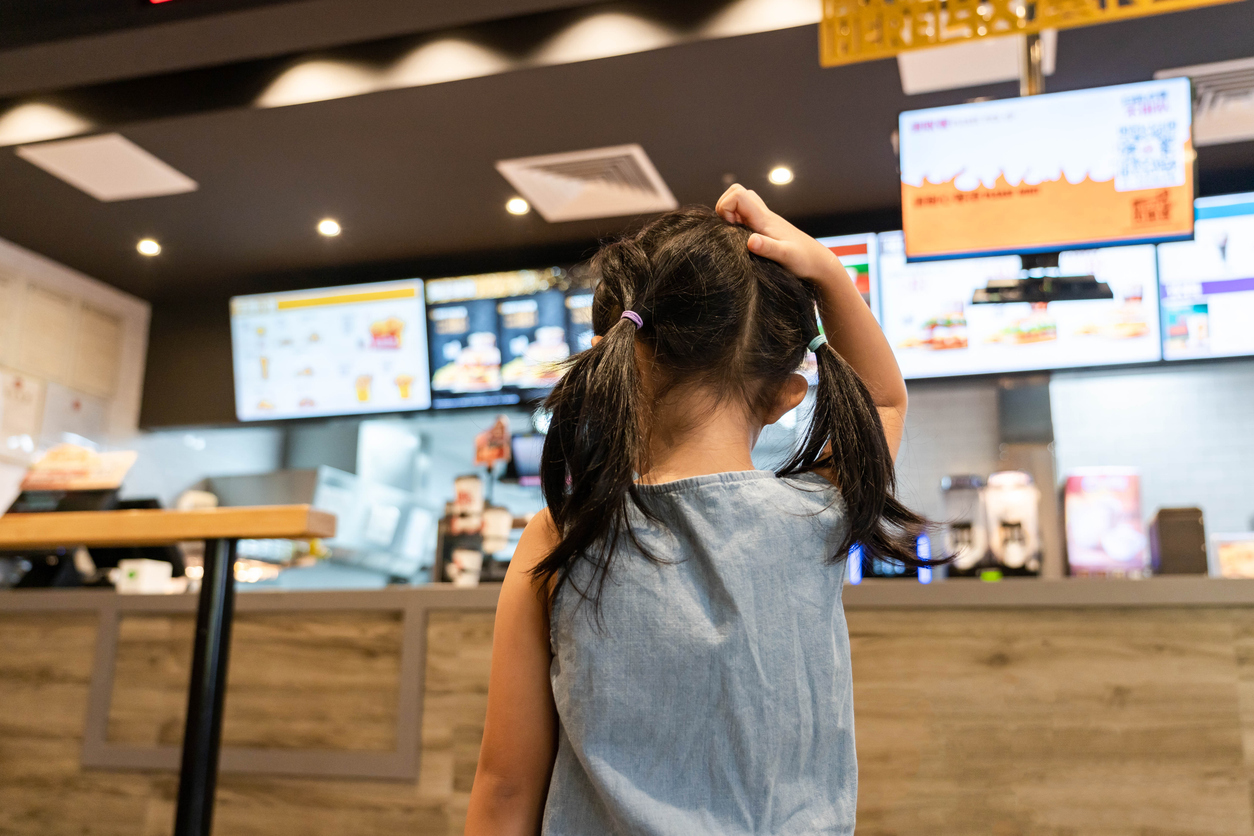In today's competitive business landscape, staying ahead of the curve is crucial for success. This is especially true in the hospitality industry, where customer expectations are constantly evolving. The use of advanced restaurant analytics is now essential for businesses looking to enhance their operations, improve customer experiences, and drive overall success.
Through the integration of advanced technologies, predictive analytics, and real-time monitoring, restaurant analytics provide comprehensive data-driven insights to optimize various aspects of restaurant operations:
- What Exactly Are Restaurant Analytics?
- Why Should You Use Restaurant Analytics?
- Ways To Utilize Restaurant Analytics For Revenue Enhancement
- Future Trends In Restaurant Analytics
Let's explore the broad scope of restaurant analytics and its potential for restaurant businesses.
What Exactly Are Restaurant Analytics?
Restaurant analytics applies a data-driven approach to managing and improving restaurant operations. It encompasses the analysis of sales data, customer behavior, inventory levels, and operational efficiency. Through the use of various tools and techniques, restaurant analytics allow businesses to make informed decisions based on factual data and insightful trends. The ultimate goal of these analytics is to enhance the restaurant's overall performance, leading to increased customer satisfaction and higher profit margins.
Why Should You Use Restaurant Analytics?
As a restaurant owner or manager, you may be wondering what specific benefits and advantages restaurant analytics can bring to your business.
- It allows you to address the unique challenges of your restaurant by providing data-driven solutions tailored to your operations.
- It enhances efficiency by identifying areas for cost savings and optimizing processes.
- It contributes to the overall success of your business by providing actionable insights for decision-making.
Now, let's dive into how you can utilize restaurant analytics to boost your revenue and achieve operational excellence.
Ways To Utilize Restaurant Analytics For Revenue Enhancement
Restaurant analytics are a powerful tool that can help businesses boost their revenue and profitability. Here are some ways you can leverage restaurant analytics to achieve this:
Analyze Your Menu
The menu is the heart of any restaurant, and analyzing its performance is essential for success. With the help of analytics, businesses can assess the popularity and profitability of each menu item, identifying top-performing dishes and those that may need improvement. By using this data to optimize the menu, businesses can align their offerings with customer preferences and increase profitability.
Track Customer Preferences
Understanding customer preferences is crucial for any business. With restaurant analytics, businesses can track and analyze customer behavior, such as preferred dishes, order frequency, and spending habits. Preventing food delivery order errors by tracking customer preferences can improve the overall dining experience and build brand loyalty. This information can then be used to enhance the overall dining experience through personalized marketing, menu recommendations, and loyalty programs.
Optimize Online Ordering
The online ordering process is becoming increasingly important for restaurants, especially in the current digital era. With restaurant analytics, businesses can analyze data from their online ordering platform to improve the user experience, reduce order errors, and increase customer satisfaction. This can lead to improved efficiency and a competitive edge in the market.
Assess Staff Performance
Staff play a crucial role in providing excellent customer service and ensuring efficient restaurant operations. With the help of analytics, businesses can track staff performance through key metrics such as order accuracy, speed of service, and customer satisfaction. This data can then be used to identify training needs and improve overall staff productivity.
Get Insights From Reviews
Customer reviews provide valuable insights into their experiences at your restaurant. By utilizing sentiment analysis and other tools, restaurant analytics can extract actionable feedback from reviews, allowing businesses to address any issues and enhance the overall dining experience for customers.
Benchmark Against Competitors
Competition in the restaurant industry is fierce, and staying ahead of competitors is crucial. Restaurant analytics can provide valuable insights into competitors' operations, allowing businesses to identify their strengths and weaknesses and make informed decisions for improvement. This can include strategies such as menu optimization, marketing tactics, and operational efficiencies.
Waste Reduction
Minimizing waste is not only beneficial for the environment, but it also significantly improves the bottom line for businesses. With the aid of restaurant analytics, businesses can effectively manage inventory levels and minimize food wastage. This approach results in significant cost savings and enhances overall sustainability. Efficient inventory management facilitated by analytics can help restaurants make informed decisions on order quantities and frequency, thereby preventing overstocking and understocking. Furthermore, data-driven strategies contribute to a more sustainable and profitable business model. This is a clear example of how restaurant analytics can support the dual goals of waste reduction and profitability enhancement.
Designing An Effective Loyalty Program
Loyalty programs are a popular way to attract and retain customers in the restaurant industry. By utilizing restaurant analytics, businesses can design effective loyalty programs that align with customer preferences and behavior, thereby increasing overall program effectiveness. Analytics can provide insights into customer habits and preferences, which can inform the structure of the loyalty program, including point accumulation, tiers, and rewards. By tailoring the incentives offered at each level to customer preferences, restaurants can create an appealing and effective loyalty program.
Delivery Optimization
In today's digital age, the rise of food delivery services has made optimizing the delivery process a crucial aspect for restaurants. Restaurant analytics can play a pivotal role in this optimization. By analyzing data from the delivery process, businesses can streamline logistics, reduce delivery times, and improve overall efficiency. This will ensure a seamless and satisfying customer experience, increasing customer satisfaction and loyalty. From identifying traffic patterns to estimating delivery times more accurately, analytics allows businesses to make informed decisions that enhance the delivery process and contribute to overall business success.
Forecasting And Scheduling
Efficient staffing is essential for any restaurant operation. Scheduling too many staff members results in unnecessary payroll expenses, while too few can lead to poor customer service. With the help of analytics, businesses can predict demand based on factors such as time of day, day of the week, holidays, and even weather patterns. This predictive approach allows for optimized staffing levels, ensuring smooth restaurant operations without overstaffing or understaffing.
Pricing Strategies
Pricing strategies play a significant role in a restaurant's success. With restaurant analytics, businesses can analyze data such as menu item popularity, customer preferences, and competitors' pricing to inform their pricing strategies. This data-driven approach enables businesses to maximize profitability while remaining competitive in the market.
Future Trends In Restaurant Analytics
The hospitality industry is constantly evolving, and with it, so are restaurant analytics. Here are some future trends to look out for:
AI Integration
Artificial intelligence (AI) is revolutionizing the hospitality industry, including restaurant analytics. The integration of AI can enhance efficiency, predict customer preferences, forecast demand, and optimize operations. However, while taking advantage of these advancements, it's crucial to maintain the human touch that lies at the heart of the hospitality industry.
Predictive Analytics For Menu Planning
Predictive analytics is a powerful tool that utilizes historical data to forecast trends and make informed decisions. In the context of restaurants, this can be applied to menu planning, allowing businesses to identify customer preferences, optimize menu items, pricing strategies, and inventory management for enhanced profitability.
Real-Time Data Monitoring And Alerts
Real-time data monitoring and alerts are becoming increasingly important in the restaurant industry. By monitoring key performance indicators (KPIs) in real time, businesses can make proactive decisions to improve operational efficiency and respond promptly to critical alerts. This technology is especially useful for large-scale restaurants with multiple locations.
Take Control Of Your Restaurant Analytics
Restaurant analytics can transform how businesses operate and compete in a digital-first landscape. By leveraging advanced technologies, predictive analytics, and real-time monitoring, businesses can improve operational efficiency, enhance customer experiences, and ultimately scale their digital programs. Whether it's through analyzing menu profitability, tracking customer preferences, or optimizing online ordering systems, Checkmate can help you derive valuable insights and stay ahead of the competition. Take control of your restaurant analytics and scale your digital business!





